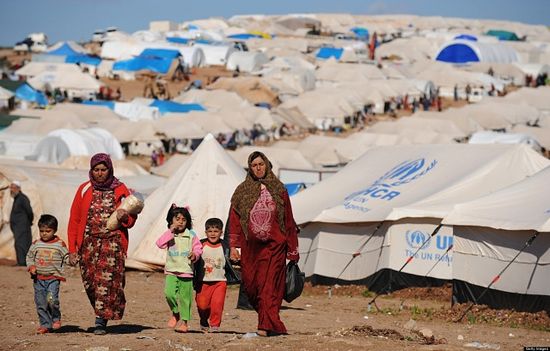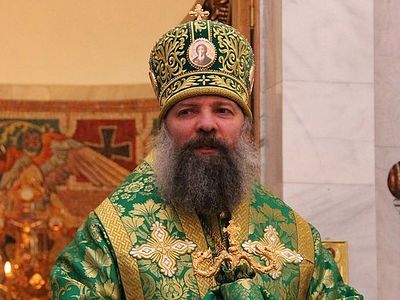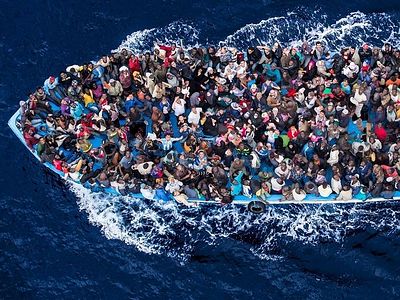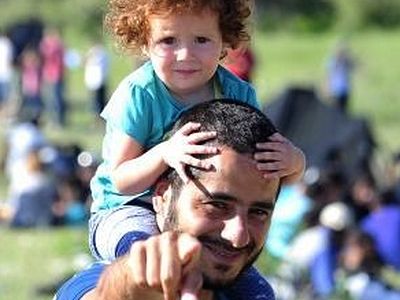The great human tragedy and resulting human suffering of mass migration out of the Mideast has been caused by the actions of certain adherents of Islam. These people bear full responsibility for what has happened to all these displaced people including all the deaths that have occurred. They should be held accountable by the world community for the evil they have done which certainly are crimes against humanity.
The mass migration has put many European countries to the test, and have challenged the moral values of Christians throughout the world. How should Christians respond to these aliens and strangers who come knocking at our borders? How do we treat migrants who themselves are related to people who have inflicted oppression and suffering on Christians?
In the past few months as I survived my chemotherapy, my heart and mind were often with these refugees. My suffering seemed small compared to theirs. Mine was limited, but for them, there is no end to the suffering in sight. Nevertheless my own suffering made me more acutely aware of theirs and far more compassionate toward them.
I don’t have any easy solutions to the issue, but some words from our scripture come to my mind. These words challenge my thinking as much as the presence of the suffering migrants who are fleeing war and violence. First words from the Torah:

God is a lover of these sojourners who are fleeing persecution. God so loved Israel in bringing them out of Egypt and into the Promised Land. God, according to Deuteronomy, provides for such sojourners and expects us to treat them as He Himself treats them.
God is love.
In the New Testament we see how difficult it is to have sympathy for strangers and sojourners, especially when we see them as a threat or as enemies, not people.
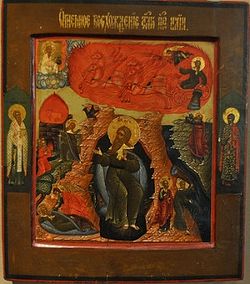 Prophet Elijah
Prophet Elijah
Jesus reminds his fellow Jews of a simple truth in history. There were times when God did not bless or favor the Jews, but rather chose a foreigner, stranger or sojourner upon whom to shower His grace. That truth so enraged the Jews listening to Jesus that they wanted to kill Him. They were the chosen people who enjoyed divine exceptionalism. They had no intention of letting Jesus point out to them how God acted with mercy and love toward a suffering Syrian.
We Christians need to remember these stories from our scriptures. We Orthodox just this past weekend read the Gospel lesson found in Luke 10:25-37 of the Good Samaritan in which the hero, the moral person in the story is a foreigner and it is this stranger, even enemy, who acts like God in displaying mercy toward a fellow human being.
Just then a lawyer stood up to test Jesus. “Teacher,” he said, “what must I do to inherit eternal life?” He said to him, “What is written in the law? What do you read there?” He answered, “You shall love the Lord your God with all your heart, and with all your soul, and with all your strength, and with all your mind; and your neighbor as yourself.” And he said to him, “You have given the right answer; do this, and you will live.” But wanting to justify himself, he asked Jesus, “And who is my neighbor?” Jesus replied, “A man was going down from Jerusalem to Jericho, and fell into the hands of robbers, who stripped him, beat him, and went away, leaving him half dead. Now by chance a priest was going down that road; and when he saw him, he passed by on the other side. So likewise a Levite, when he came to the place and saw him, passed by on the other side. But a Samaritan while traveling came near him; and when he saw him, he was moved with pity. He went to him and bandaged his wounds, having poured oil and wine on them. Then he put him on his own animal, brought him to an inn, and took care of him. The next day he took out two denarii, gave them to the innkeeper, and said, ‘Take care of him; and when I come back, I will repay you whatever more you spend.’ Which of these three, do you think, was a neighbor to the man who fell into the hands of the robbers?” He said, “The one who showed him mercy.” Jesus said to him, “Go and do likewise.”
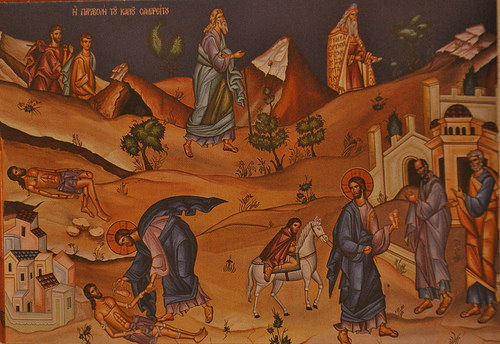 Icon of the parable of the Good Samaritan
Icon of the parable of the Good Samaritan
In July, 1938, a poll of Americans asked whether Americans should accept refugees from Europe who were escaping political events there specifically the rise of fascism and the oppression it represented. At that time, 67% of Americans opposed allowing these refugees into America. Then following the events of Kristallnacht when it became clear that the oppression of Jews had already begun in Europe, Americans were polled by Gallup’s American Institute of Public Opinion in January 1939. Two-thirds of Americans still opposed bringing refugee children to America. Americans were overwhelmingly against bring 10,000 German Jewish refugee children into our country to help them escape persecution. We know the result of our unwillingness to take such Jewish refugees in at that time.
 Jewish cemetery in Prague
Jewish cemetery in Prague
We can not afford to take the Syrian refugees into our countries and we cannot afford not to. This situation has been seen in the world before. As Christians, we have God’s Word to guide out thinking. Clearly there are risks to follow and enact the teachings of Christ. On the other hand, there are eternal consequences for not following His teachings as well. We need to feel the pressure of this issue.
A few final thoughts:
This humanitarian crisis is the result of policies by Muslim leaders in Muslim countries. Many argue that these leaders and countries are not “truly” Islamic. But they certainly aren’t Christian or Jewish or Buddhist. They are countries and leaders shaped by Islam. Muslims need to consider what is it in Islam that brings this situation into existence and allows it to continue to exist? It is people claiming to follow Islam who have created this humanitarians crisis.
Note also that the Muslims fleeing the suffering are not in general seeking admission to Islamic countries. Nor do we see Islamic countries doing everything possible to welcome their fellow Muslims. Muslims are fleeing traditionally Muslim countries and trying to find their way to non-Islamic countries. Why? Again, Muslims need to ask themselves what is it in Islam that allows and causes this to happen? It may be true that some leaders and countries are distorting Islam, but what in Islam lends itself so readily to such distortion?
Even though Europe and most of the West are considered to be “post-Christian”, we see it is Christian morality which causes people to welcome refugees in. It is Christian morality which Muslim refugees are seeking. Even when Christians and “post-“Christians are conflicted about how to deal with these refugees, still it is Christian values which causes people to agonize over how to treat these refugees.

I would say for my fellow Christians, an eye for an eye and a tooth for a tooth is not Christian morality. Neither is an attitude that we should kill others for wounding us. Or that we should kill seventy fold for everyone of us who dies at the hands of terrorists (this idea belongs to Lamech in Genesis 4, not to those following the Lord).
As Americans, we might remember the ideal we find enshrined on our own Statue of Liberty:
“Give me your tired, your poor,
Your huddled masses yearning to breathe
free,
The wretched refuse of your teeming shore.
Send these, the homeless, tempest-tossed, to
me:
I lift my lamp beside the golden door.”
